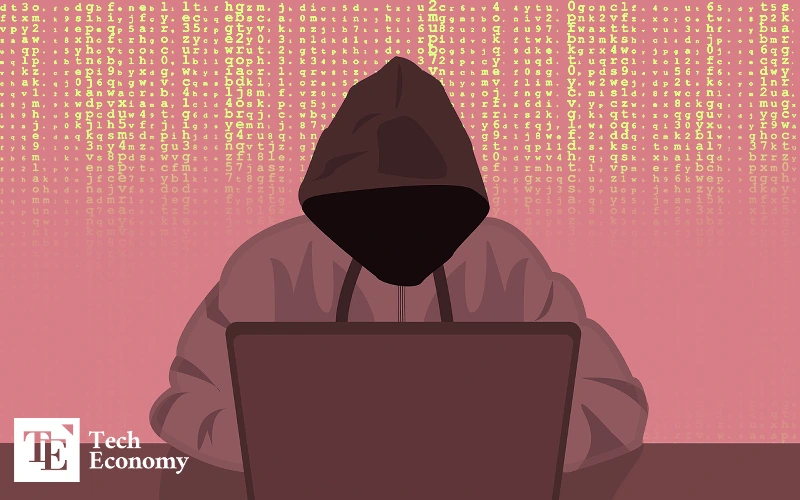The Breach of Trust: How the Tea Hack Shattered Online Safety for Women
Input
Changed
Behind a username, behind a screen, She told her truth, unseen. But silence was never part of the code, Her secrets now roam the digital road.
The recent cyberattack on Tea, a popular women-focused social platform, has exposed a harsh truth many have long feared: the internet is not a safe place for vulnerability. This is not just a story about poor cybersecurity. It is a devastating account of how digital intimacy, marketed as empowerment and connection, became a weapon turned against the very women who trusted it.
As details from the breach continue to surface, it is becoming increasingly clear that the attack was neither random nor indiscriminate. Direct messages, some containing deeply personal confessions about abortion, infidelity, and mental health, were deliberately targeted and leaked. It is not just data that was stolen, but agency, dignity, and safety.
While technology companies race to patch vulnerabilities, the real damage has already occurred: emotional harm, social risk, and public betrayal that no update or apology can undo.

A Calculated Attack on Women's Privacy
The breach in question was not the first to affect Tea, but it is by far the most consequential. Hackers accessed a trove of private messages, user photos, and even location metadata. Many of the conversations now circulating online involve women discussing reproductive choices, disclosing personal trauma, or navigating emotionally complex situations.
Security experts believe the hackers were not just opportunists looking for credentials or credit card data. The nature of the leak, focusing on private DMs between women, including messages about abortions and cheating, suggests intent. It was a targeted intrusion aimed at exposing, humiliating, and destabilizing a user base that was already vulnerable within broader societal structures.
The scale and tone of the breach convey a message: that women's online spaces, no matter how carefully curated or marketed as private, are not immune to scrutiny or violation. By compromising this platform, the hackers made a symbolic statement about the fragility of digital trust, particularly when it involves communities that rely on discretion for survival.
Some experts have pointed out that this kind of attack resembles forms of digital misogyny. Rather than stealing financial assets, the aim here was to compromise emotional and social currency. The most damaging part is that it worked.
Corporate Negligence or Cultural Blind Spot?
The outrage toward Tea's executives is not just about the breach itself, but about what many see as preventable negligence. Users had already raised concerns after a smaller incident months ago. At the time, Tea's management promised better safeguards and reassured users that their data was safe. However, promises without structural change have become a recurring pattern in the tech industry.
Critics now argue that Tea’s core flaw was prioritizing aesthetic branding and growth metrics over security infrastructure. Privacy should never have been a secondary feature. Yet in an industry often driven by speed to market and user acquisition, safeguarding vulnerable users was sidelined.
According to internal sources, developers and moderators flagged data security issues as early as last year. These concerns were reportedly dismissed or left unresolved due to budget constraints and a lack of leadership interest. That culture of delay has now resulted in irreversible damage.
The leak has shattered user confidence. Many former users are now abandoning the platform, and it's not just because their messages were exposed; there are other factors at play. It's because they feel betrayed. Tea positioned itself as a safe digital space for women, a place where they could share their experiences without judgment or fear. That promise has now been broken.
Even among those whose data was not part of the leak, trust has eroded. People are deleting accounts, removing apps, and warning others against engaging with platforms that cannot guarantee privacy. The emotional fallout is immense, particularly for women in regions where discussions around abortion or personal relationships carry legal or social consequences.
One former user wrote anonymously in a community blog, “I joined Tea to feel less alone. Now I feel more exposed than ever.” That sentiment has been echoed across social media, with hashtags like #TeaBreach and #NoMoreSecrets trending in protest.

The Wider Implications for Digital Safety
The breach at Tea has reignited a broader conversation about the limits of digital privacy, especially for marginalized groups. While privacy breaches are unfortunately common, the nature of this one, targeting a platform primarily used by women for personal reflection and mutual support, amplifies the stakes.
The event underlines how cybersecurity is no longer just a technical issue. It is also a social justice issue. Vulnerable users are disproportionately affected by breaches, and their harm goes beyond mere inconvenience. For many, especially those living in conservative or high-surveillance regions, the consequences of a leak can be life-altering.
There are also geopolitical angles worth considering. Some cybersecurity analysts have noted that the methodology used in this hack resembles tactics used in ideological information warfare, where the goal is not financial gain but societal destabilization. In this case, sowing distrust in women-centered digital communities may be part of a broader agenda aimed at limiting open discourse on sensitive topics, such as reproductive rights and gender equality.
Whether or not there was state-level involvement remains to be seen. But even if this was the work of rogue hackers, the result is the same. A space that women turned to for connection and healing has been turned into a battlefield.
Tech companies should take this as a warning. Any platform that invites people to share their private lives must treat security as a foundational pillar, not an optional add-on. This involves hiring qualified cybersecurity personnel, conducting regular vulnerability assessments, and addressing user concerns with promptness and transparency.
What makes this event particularly disturbing is that it was preventable. The tools to avoid it, such as end-to-end encryption, stricter access controls, and anonymization protocols, are well-known and widely used. Tea chose not to implement them adequately. The cost of that choice is now being paid by its users.
The responsibility, however, does not rest solely on Tea. Regulators have a crucial role to play, particularly in enforcing data protection laws and holding platforms accountable when they fail to comply. Users, too, must become more aware of the risks they face and demand better from the companies that host their data.
Ultimately, this breach is a grim reminder that secrets whispered in digital corners are never truly safe. For women, especially, the illusion of privacy can carry devastating consequences when trust is misplaced.
And so the question now is not just how platforms can rebuild, but whether users will ever be willing to trust them again. The damage is done, but the fight for safer spaces, online and off, must continue.





















